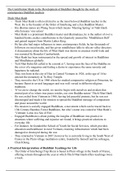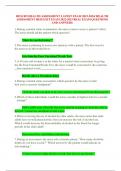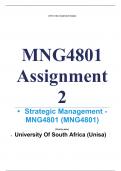Summary
Summary The Contribution Made to the Development of Buddhist Thought by the Work of Contemporary Buddhist Teachers
- Course
- Institution
A discussion of the influences of Thich Nhat Hanh (Thay) and the Dalai Lama on contemporary interpretations of buddhism. A look at the Order of Interbeing and the practical interpretations of Buddhist teachings in order to apply to daily life. The links between Mindfulness and Zen Buddhism are als...
[Show more]












